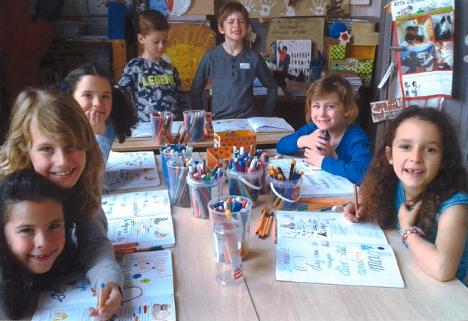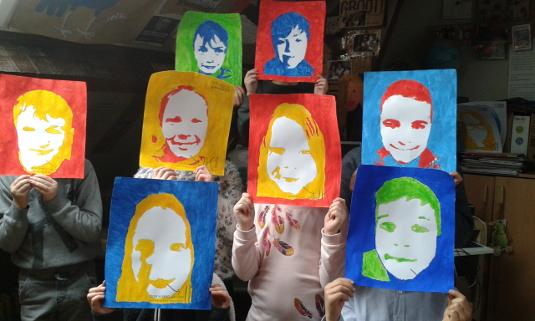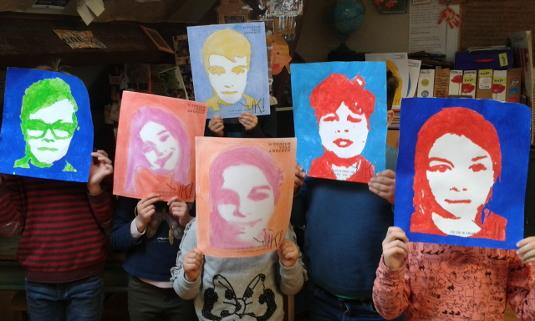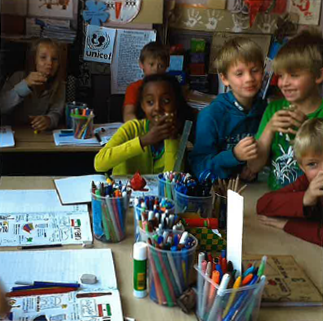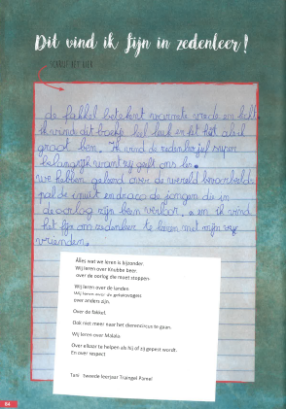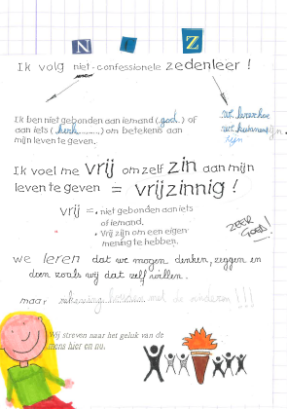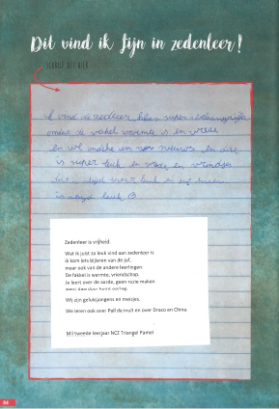
EXHIBITIONS
The pupils of the public elementary schools De Kiem (Wambeek) and Triangel (Pamel) talking and working during their non-confessional ethics course, submitted by Kathleen Vancutsem, NCZ teachter
When Belgium came into being in 1830, only one life stance was recognised in education, namely the Roman Catholic religion, because that is "the worship of the majority of pupils". For many years, the organisation of religion and morals classes was a bone of contention between the political parties (the so-called School War). From 1884 onwards, parents could request exemption for their children to attend religion classes. It was only when the new statutes for secondary education were drawn up in 1924 that a morals course was set up. Pupils exempted from the religious lessons had to follow the moral education lessons. These were taught by the teachers of literary subjects, the head of the class or the head of the institute. The quality often left much to be desired. In 1948 Richard Van Cauwelaert became the first inspector for the lessons in moral education. He made a special effort to change the situation.
With the “School Pact” of 1959, the morals course became an elective subject with a clearly non-confessional profile. NCZ (“niet-confessionele zedenleer”) lessons are organised in all years and types of education. Teachers who have taken the course themselves in secondary education voluntarily take on these classes. The NCZ teacher training programme is gradually introduced in mainstream education, at Ghent University and the Free University of Brussels. With the establishment of the RIBZ (1993) as an autonomous management body for NCZ lessons, the quality of the lessons is guaranteed.
The pictures show pupils of the first, second and third year at work. The self-portraits in pop-art style are of the pupils of the 1st and 3rd grade of the public primary school Triangel in Pamel as part of the class That's me! Beautifully different. Different from others. You are who you are!
